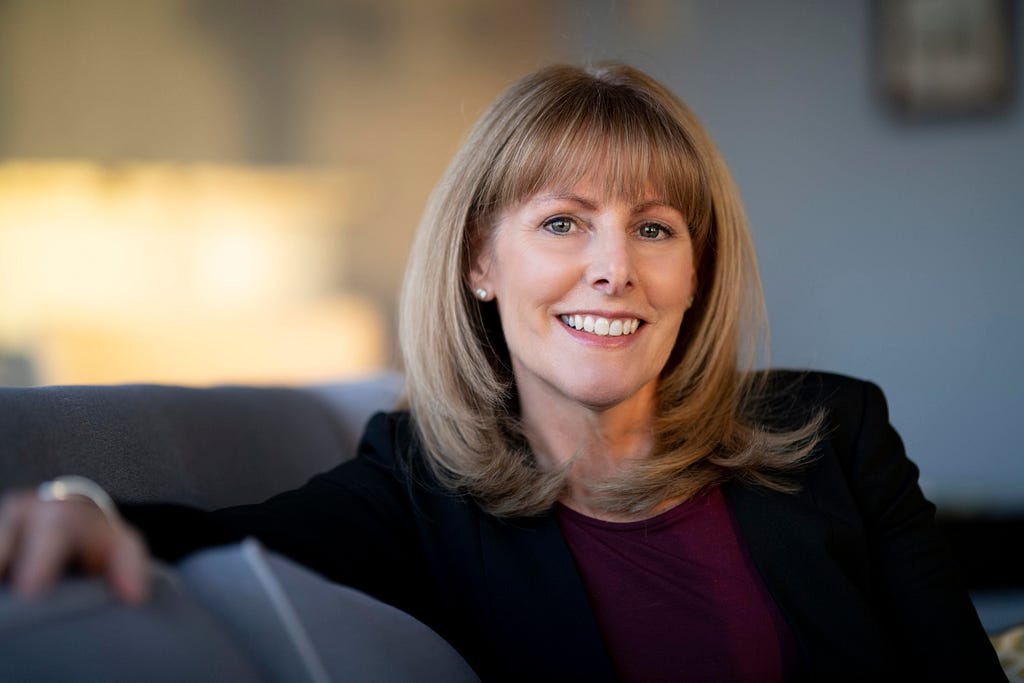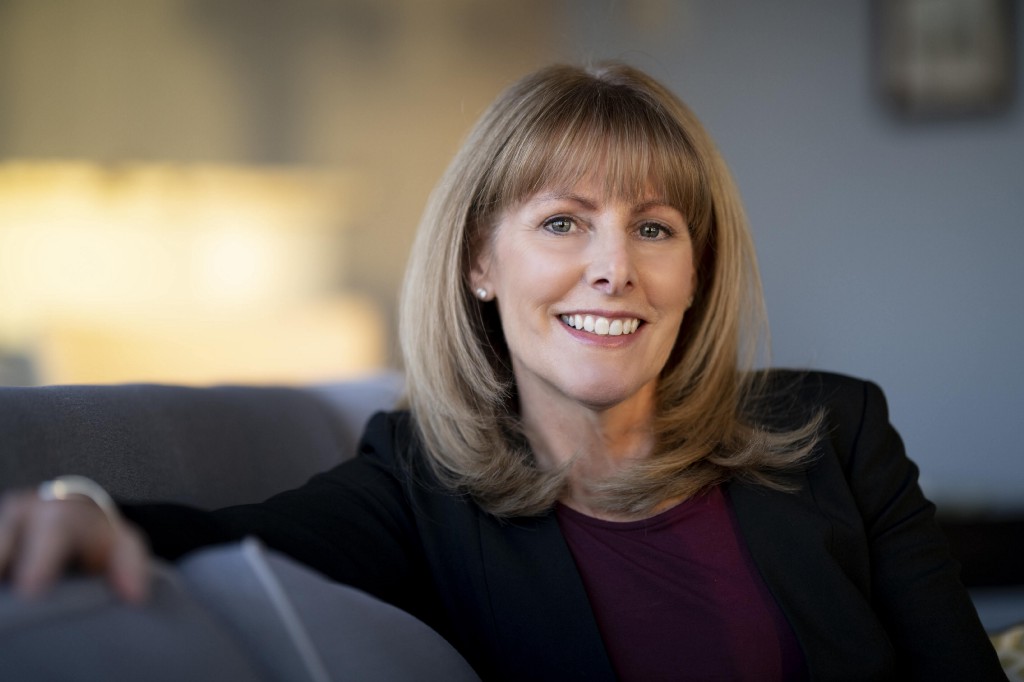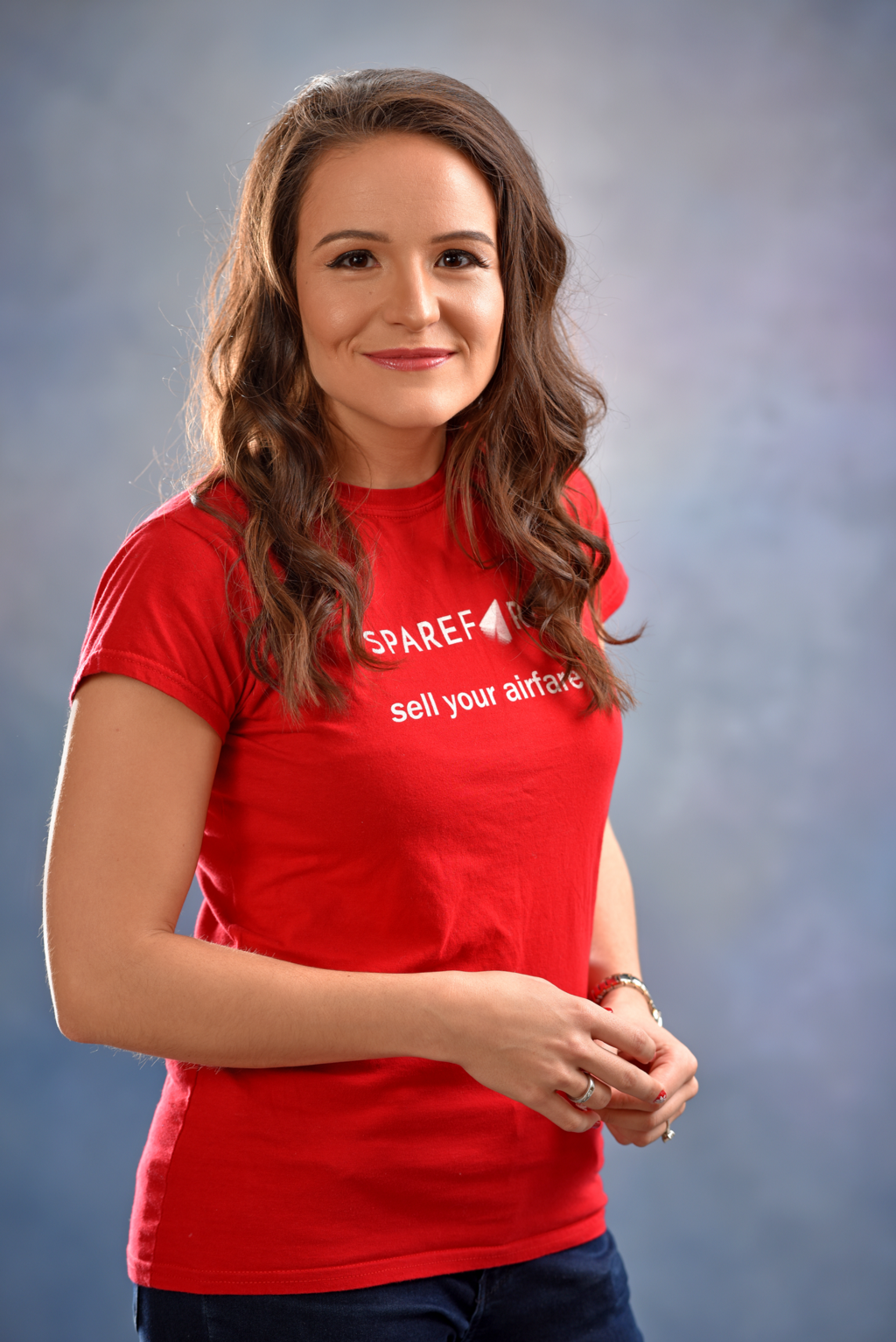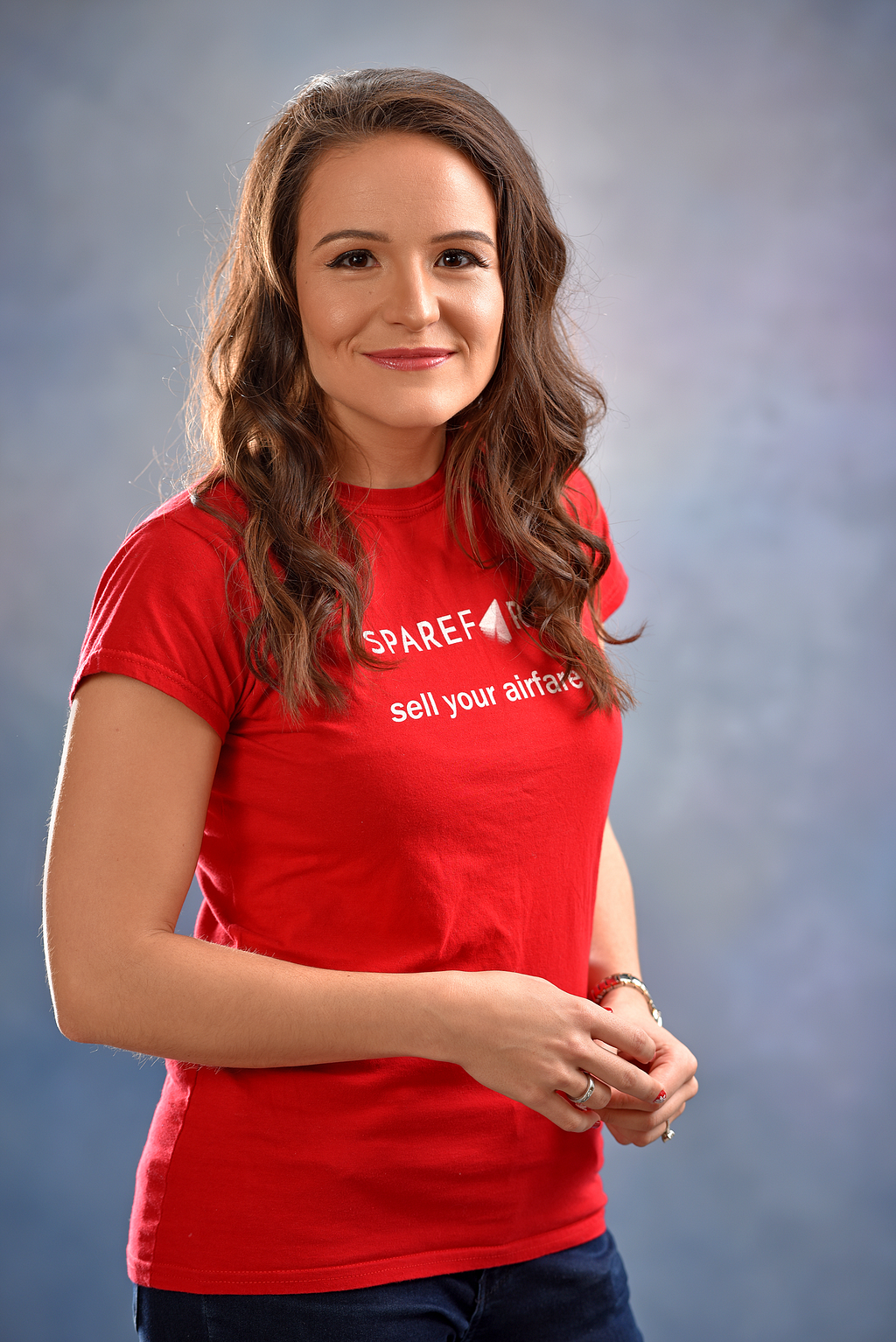“How I Was Able To Thrive First Despite Experiencing Impostor Syndrome” With Caren Kenney of Premier Executive Leadership

Get more comfortable with being uncomfortable. Be proactive in intentionally pushing yourself out of your comfort zone — and not just at work. Taking on any challenge will help you build confidence in all areas of your life. For me, I attacked my fear of heights by reluctantly agreeing to zipline with my daughters over a canyon in Hawaii (I confess that my eyes were closed most of the time, but I figured if I died at least it would be in a beautiful place!). And then when I survived that, I agreed to climb Mt. Kilimanjaro with some of my colleagues and family — and I’m still here! As I learned from Dr. Loehr, everyone who pushes the envelope and goes where they have never gone before will experience impostor syndrome in varying degrees. The critical issue is how you deal with it — deny it, become less transparent, more distant and insecure or recognize and acknowledge the feelings for what they are — completely normal and to some extent inevitable. Balance your feelings of insecurity with intentional strong, positive self-belief, recognize the value of showing genuine humility in leadership, resist being distant and impersonal to protect yourself, and reflect often on your purpose.
As a part of our series about how very accomplished leaders were able to succeed despite experiencing Imposter Syndrome, I had the pleasure of interviewing Caren Kenney.
Caren is Executive Director of Premier Executive Leadership™, confidential executive development and wellbeing program focused on helping CEOs and C-suite executives thrive in highly stressful roles. She is a successful entrepreneur who co-founded a health technology start-up that developed the industry’s first direct-to-consumer behavioral health digital coaching programs, which were ultimately acquired by the largest healthcare company in the world. She also coaches a range of leaders and entrepreneurs as part of her role at the Human Performance Institute.
Thank you so much for joining us! Our readers would love to “get to know you” a bit better. Can you tell us a bit about your ‘backstory’?
From a professional perspective, I’ve had the unique experience throughout my career of never moving into an existing role — landing new positions that I either pitched or were created and that involved launching new businesses and programs. This has presented both an incredible opportunity and challenge which required me to continuously reinvent myself, but it has resulted in an exciting and rewarding career to date.
From a personal perspective, I am blessed with an amazing family including two beautiful daughters, but my life has also presented some significant challenges that tested me mentally, physically, emotionally and spiritually, including losing my first husband to a slow-developing but severe mental illness, raising my daughters as a single parent, and battling an ongoing and still undiagnosed autoimmune disorder after being misdiagnosed with some scary conditions like multiple sclerosis and cancer. As difficult as these experiences have been, each has ultimately helped me grow and become more resilient and reminded me how important it is to identify and stay connected to your personal purpose, take care of yourself, and invest your energy in the people and things that matter most in your life.
Can you share with us the most interesting story from your career? Can you tell us what lessons or ‘takeaways’ you learned from that?
As co-founder of a small health tech start-up company that developed the world’s first direct-to-consumer digital behavioral health coaching programs, I was driven by a passion and personal purpose fueled by the challenges my family experienced. My mission was to provide confidential help to people around the world struggling silently with mental health issues. While I knew we were on to something unique and desperately needed, I had no idea that within 24 months we would go from a scrappy start-up to ultimately being acquired by the largest healthcare company in the world. Key takeaways for me were:
- Stay focused. Be clear about who you are, how you are uniquely different, and what you are delivering. Stay laser-focused on what you’re good at, what problem you are solving, and who you are solving it for.
- Don’t go it alone. In a startup, you have to wear many hats, but you can’t be good at everything. Ensure you bring in diverse perspectives as well as the right external partners who are also on the cutting edge (e.g. we invested in a technology partner that was ahead of its time, which provided us with a competitive advantage).
- Don’t flinch. There were days when we weren’t sure if we could meet payroll or keep the lights on but we stayed the course, didn’t let small things derail us, and acted like we were bigger than we were (“fake it until you make it!”) to maintain investor and customer confidence. There will always be people who don’t believe you will succeed but don’t let their skepticism become your own.
- Stay connected to your purpose. Building and growing a new business is challenging and comes with significant risk and uncertainty. If you remain steadfast on “why” you are doing what you are doing and truly believe it, this can become the wind at your back and help you push through the storms.
- Don’t sacrifice yourself. One of the biggest mistakes leaders make is deprioritizing their own wellbeing in order to make their companies successful, but when you fail to thrive, your company and relationships fail to thrive as well. Taking care of yourself can keep you from burning out and becoming disillusioned over time.
What do you think makes your company stand out? Can you share a story?
The Human Performance Institute (HPI) takes a holistic, science-based approach to help individuals achieve higher levels of performance in all areas of their lives. By integrating the sciences of performance psychology, exercise physiology, and nutrition, we help individuals effectively maximize their energy across four interconnected dimensions to create lasting behavior change. Key areas that make us unique:
- We take a holistic (whole person/whole life) approach and recognize the intricate interplay between our physical body, our emotional and mental capacity, and how we maintain alignment to our deepest held values.
- HPI is the only organization whose promise of sustained behavior change is supported by published, evidence-based studies, and sustained outcomes at 18 months.
- We recognize Purpose as a critical element to engaging and empowering people to take control of their lives and unleash their personal performance across all facets of life — with 25 years of data collection to prove it. This is why it is a cornerstone of everything we do.
- HPI leverages a deep human insight that appears to connect with the fundamental human “operating system,” creating a deep affinity for our programs and behavior change that transcends age, gender, continents, and cultures. Our solution connects with over 100,000 people each year in 40 countries around the world.
None of us are able to achieve success without some help along the way. Is there a particular person who you are grateful towards who helped get you to where you are? Can you share a story?
Many people have supported me throughout my career, but one in particular that stands out is Dr. Jim Loehr, the world-renowned performance psychologist who co-founded the Human Performance Institute and has coached world-class athletes, Fortune 100 CEOs, and military special forces. When I went through training at the institute nearly 11 years ago, I had the great privilege of having Jim as my coach and he continues to be an incredible mentor and friend. He challenged me on my old story about why I didn’t take care of myself better and put my wellbeing first and taught me the importance of having a clearly defined personal purpose and how to activate it, not only to maximize my energy capacity but to invest it in the people and things that matter most in my life.
So many of us are really good at fooling ourselves into believing we can’t do the things we need to do because we don’t have the time, resources, or ability to do so. That’s your old story, and until you change it, you’ll never get your life right — and you will never truly be successful in anything you do.
Ok thank you for all that. Now let’s shift to the main focus of this interview. We would like to explore and flesh out the experience of Impostor Syndrome. How would you define Impostor Syndrome? What do people with Imposter Syndrome feel?
Imposter Syndrome is a belief that one is inadequate and/or undeserving of their role or success, and that it is only a matter of time before others will find out and expose them as a fraud. Almost everyone experiences imposter syndrome at some point in their life — even the most successful global CEOs and other C-suite executives. Instead of feeling the joy and accomplishment they expected when reaching the top, many CEOs feel lonely, anxious, and vulnerable — like they are not only failing in their roles but in their relationships with the people who matter most in their lives. Entrepreneurs can be especially vulnerable as they are charting new uncertain territory and often lack the skills and years of experience of more seasoned leaders.
I believe it is further exacerbated for a couple reasons:
- Leaders are now continuously in the spotlight — facing even greater demands and expected to possess an expanded set of competencies, take a stance on social and political issues, and navigate complexity, with the need to continuously disrupt themselves and their organizations.
- We are evolving business processes and technology at lightning speed — continuously disrupting, transforming and reinventing business models — but we are failing to evolve the human beings who are at the core and required to make all of this successful. It’s a phenomenon that no one is talking about or addressing.
- As a result, people struggling with Imposter Syndrome often feel stressed, anxious and overwhelmed, and in a desperate move to keep up, they make sacrifices like sleeping less, skipping workouts, and deprioritizing recovery and time with loved ones and friends. This only exacerbates their feeling of failure.
What are the downsides of Impostor Syndrome? How can it limit people?
While almost everyone experiences Imposter Syndrome at some point in their life, persistent levels can wreak havoc on our mind and body. Ongoing fear of being exposed is associated with higher levels of the stress hormone cortisol in the brain and body1 and higher levels of anxiety and depression. Feelings of insecurity can cause one to work even harder and neglect self-care (eating well, engaging in physical activity, getting enough quality sleep and regular recovery, etc.) and turn to unhealthy behavior and even substance abuse. Imposter Syndrome and lack of confidence can also limit one’s willingness to take risks and to be creative, agile and disruptive — all key attributes of a successful entrepreneur.
How can the experience of Impostor Syndrome impact how one treats others?
Imposter syndrome often results in a lack of trust and confidence in oneself and others, and research suggests that this can even impact decision-making and ethical standards2. When we experience self-doubt, we not only judge ourselves critically but are more likely to judge others critically, which can impact our ability to build strong, healthy and productive relationships. Additionally, those who struggle with imposter syndrome often feel they can never really let people know who they are because in their mind they are a fraud. This can cause others to perceive them as very distant and difficult to know, which can undermine trust and team spirit.
We would love to hear your story about your experience with Impostor Syndrome. Would you be able to share that with us?
I have experienced Imposter Syndrome many times throughout my career — the most recent being four years ago when I took on my current role. As excited as I was about the position — and the ability to lead a team in creating an exciting, innovative and desperately needed new category in executive leadership development and wellbeing — there were some terrifying moments! I would be working with and coaching many of the top global leaders in the world. I had never held one of their roles — had never been the CEO of a Fortune 100 or 500 company. Why would they listen to me? What if they found out I didn’t have near the experience they did? What if the program didn’t work?
Did you ever shake the feeling off? If yes, what have you done to mitigate it or eliminate it?
Given my desire to continue to seek new and challenging roles and opportunities (and the fact that I am human!), I’m sure I will never completely eliminate occasional feelings of not being qualified enough for a role or project, but I believe I have come a long way. The more I have worked with leaders at all types of organizations, the more I learned that we are really no different. We all want to find meaning in our lives, and we all struggle with some of the same universal issues — confidence, stress and burnout, challenges with building and sustaining meaningful relationships, and personal challenges such as caring for a family member who is ill or struggling or dealing with a personal physical or mental health issue. I employed a few strategies to keep myself in check and mitigate this from resurfacing:
1) connected with my personal purpose — my desire to have a positive impact on the lives of others who are struggling — and viewed my role as an opportunity to accomplish this
2) reminded myself that this is a universal feeling we all experience and it’s OK — and even beneficial — to get out of my comfort zone as it’s an opportunity for growth
3) challenged my thinking about my competency — reminding myself that I do have some unique experience and skills that I bring to the table and that I need to be more compassionate with myself, stay positive, and change the story in my head.
In your opinion, what are 5 steps that someone who is experiencing Impostor Syndrome can take to move forward despite feeling like an “Impostor”? Please share a story or an example for each.
- Identify and challenge your critical inner voice. Tune in to your inner private voice, and when it tells you that you are not good enough or that you will fail at what you are doing, ask yourself: What is the tone of this voice and where is it coming from? Is this the voice I want to take me through the most important challenges in my life? What evidence do I have that I will not be successful? What are the true facts?
- Create a new story and a private voice. Ask yourself the following questions: What do I uniquely bring to the table? Why was I chosen for this role? What have I done successfully/learned in the past that I can apply to this role? What would I say to a friend or loved one who was experiencing these feelings?
- Connect to your Purpose. Get crystal clear on why you are here on this earth — what matters most to you, and what difference you want to make. Most of our clients think they know their purpose, but too often we find that either 1) their purpose is not clearly defined or too broad and 2) they confuse their organizational purpose with their personal purpose, and subsequently too often sacrifice their personal wellbeing in service of what they are trying to achieve for their business. In the end, both the individual and organization will struggle. Employ daily rituals and strategies that enable you to successfully live into your purpose.
- Manage your energy. In our training and coaching of thousands of executives around the world, we have found that when their energy levels are depleted, they struggle with confidence, decision making, and their ability to perform successfully in all areas of their lives. When you are doubting yourself, check-in on how you are managing your energy. Are you getting enough sleep, eating well, exercising, and taking regular recovery breaks throughout the day? A deficit in any area impacts your confidence, emotions, ability to focus, your relationships with others, and the ability to perform at your best in every area of your life. A few quick strategies: Move frequently through the day, Eat light and often (strategic snacks throughout the day), Get 7–9 hours of sleep, Build-in recovery breaks throughout the day (e.g. end meetings 5 minutes early), Journal daily — practice gratitude and affirmations, reflect on your accomplishments, set intentions, etc.
- Get more comfortable with being uncomfortable. Be proactive in intentionally pushing yourself out of your comfort zone — and not just at work. Taking on any challenge will help you build confidence in all areas of your life. For me, I attacked my fear of heights by reluctantly agreeing to zipline with my daughters over a canyon in Hawaii (I confess that my eyes were closed most of the time, but I figured if I died at least it would be in a beautiful place!). And then when I survived that, I agreed to climb Mt. Kilimanjaro with some of my colleagues and family — and I’m still here! As I learned from Dr. Loehr, everyone who pushes the envelope and goes where they have never gone before will experience impostor syndrome in varying degrees. The critical issue is how you deal with it — deny it, become less transparent, more distant and insecure or recognize and acknowledge the feelings for what they are — completely normal and to some extent inevitable. Balance your feelings of insecurity with intentional strong, positive self-belief, recognize the value of showing genuine humility in leadership, resist being distant and impersonal to protect yourself, and reflect often on your purpose.
You are a person of great influence. If you could inspire a movement that would bring the most amount of good to the greatest amount of people, what would that be? You never know what your idea can trigger. 🙂
GLOBAL DISCONNECT. While technology has enabled great advances, it often isolates us and consumes an inordinate amount of our time and energy. I would initiate a weekly one-hour global technology disconnect and recovery break — 60 minutes where people commit to disconnecting from all electronics (phone, television, social media etc.) and focus on investing in either:
- Themselves (journaling, meditating, enjoying nature, etc.) or
- Relationships (taking a walk, playing a game, or enjoying an uninterrupted meal with a loved one)
- Of course, they can then jump back on social media and share their stories of recovery and connection with loved ones!
We are blessed that some very prominent leaders read this column. Is there a person in the world, or in the US, with whom you would love to have a private breakfast or lunch, and why? He or she might just see this, especially if we tag them 🙂
While I have had the great fortune to meet some prominent inspirational leaders throughout my career, I would be most excited to have a private meeting with Bill Gates. He is obviously an incredibly successful entrepreneur, is able to think big yet stay laser-focused on what is important, and has had a huge impact on the world. But more importantly, he is a leader who has demonstrated incredible character and integrity — staying connected to his values, blending his passion for his personal purpose, and building a remarkable legacy that will live long beyond his time on this earth.
How can our readers follow you on social media?
LinkedIn: https://www.linkedin.com/in/carenkenney/
Twitter: @carenkenney
Instagram: CarenKenney
1 https://www.psychologytoday.com/us/blog/real-women/201809/the-reality-imposter-syndrome
This was very inspiring. Thank you so much for joining us!
“How I Was Able To Thrive First Despite Experiencing Impostor Syndrome” With Caren Kenney of… was originally published in Authority Magazine on Medium, where people are continuing the conversation by highlighting and responding to this story.




